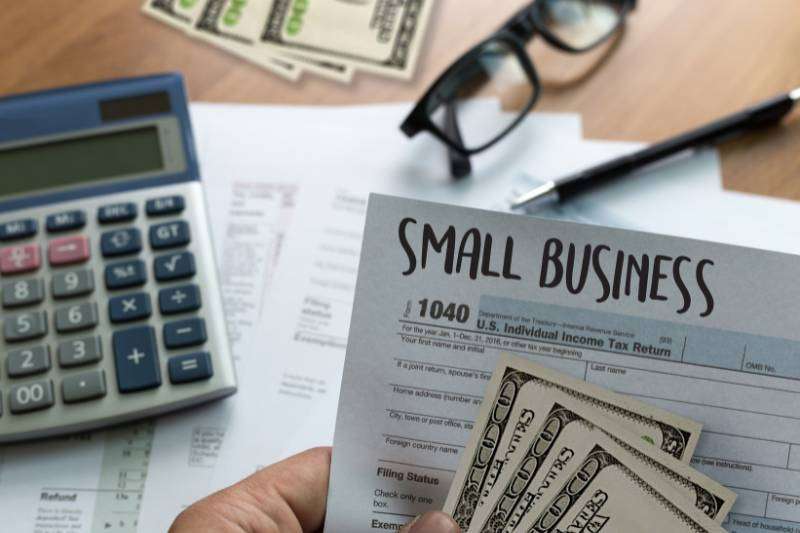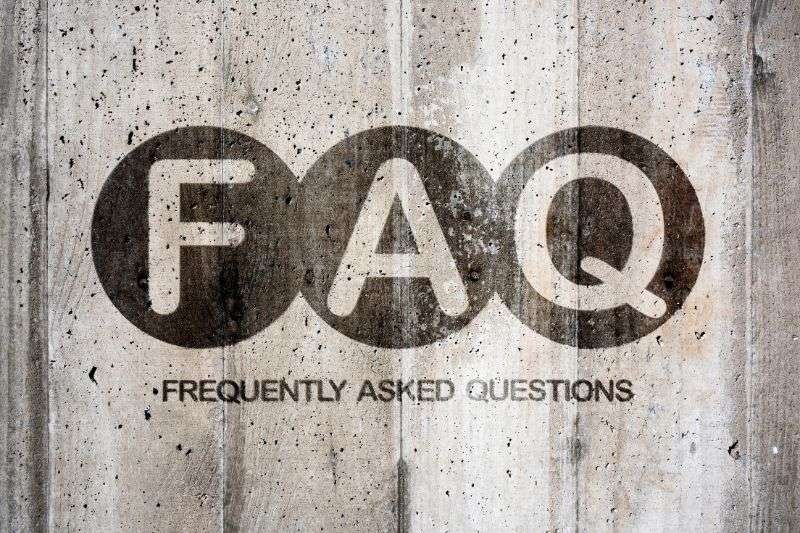Accounts For Small Business
As a small business owner, you know that having good accounting practices is vital to the success of your company. Not only does it help you keep track of your finances and make sure that all of your taxes are filed on time, but it also gives you a clear picture of how well your business is doing overall.
What Is An Accountant?
An accountant is a professional who helps businesses keep track of their finances. They can help you file your taxes, track your expenses, and make sure that your business is running smoothly financially.
Accountants are important for small businesses because they can help you stay organized and make sure that you are making the most of your money.
What Is Accounting For SMEs?
Accounting for small and medium-sized enterprises, or SMES, is the process of tracking and recording financial transactions for a business. This includes tracking expenses, income, and assets, as well as preparing financial statements and filing taxes.
Accounting is important for SMEs because it helps them track their finances and make sure that they are operating efficiently.
Basics of Accounting
The three basics of accounting are: recording financial transactions, preparing financial statements, and filing taxes. These three tasks are essential for any business to keep track of its finances and stay compliant with tax laws.
A) Recording financial transactions
To ensure that a business is keeping track of all of its financial transactions, it is important to record them in a journal. A journal is a book where businesses can record their transactions chronologically. This allows businesses to track their income, expenses, and assets over time.
B) Preparing financial statements
After a business has recorded its financial transactions in a journal, it can then prepare financial statements. Financial statements show a business’s financial position at a specific point in time. They include the balance sheet, which lists a business’s assets and liabilities, and the income statement, which shows a business’s revenue and expenses.
C) Filing taxes
All businesses are required to file income tax with the government. To do this, businesses must keep track of their income and expenses throughout the year. They will then use this information to prepare their tax return. Tax returns must be filed by businesses of all sizes, from sole proprietorships to large corporations.
5 Principles Of Accounting
- Revenue honour
Revenue should be recognized when it is earned, not when it is received.
- Matching expenses with revenue
States that expenses should be matched with the revenues they generated.
- Full disclosure
Businesses should disclose all information relevant to their financial statements.
- Conservatism
Small businesses should be conservative in their accounting practices, and should not report revenue or assets that may not be realized. This helps to ensure that businesses are not overstating their financial position.
- Periodicity
Record business transactions periodically. Helps to ensure that financial statements are accurate and up-to-date.
Free Accounting Softwares
- Zoho Books – Best accounting software around for project tracking and very small businesses
- Crunch – Effective accounting software that integrates with major banks and easily records receipts
- ZipBooks – A great software if you have a limited budget but still seeking a modern and feature-rich tool
- AdminSoft – A good choice for small business owners if they need simple software without all the bells and whistles
- GnuCash – Simple but hugely flexible software that has payroll and multiple currency features
Paid Accounting Software
- QuickBooks – Comprehensive cloud-based accounting software that is perfect for small business owners for business bank account
- FreshBooks – Easy to use and the best for all-rounders with a user-friendly interface and plenty of features that keep records
- Sage – Perfect for less IT experienced small business owner that wants good value and multiple users solution and accounting features
- FreeAgent – Isn’t the cheapest but the best if you are a limited company and want all the features for a fixed fee
- Xero – If you starting a business and need software for small businesses that is simple but effective this will work
5 Basic Accounts For Small Business
The five basic accounts: Assets, Liabilities, Equity, Income, and Expenses. These chart of accounts are used to track a company’s financial position and performance over time.
- Assets:
Everything a company owns and can use to generate revenue. This could include cash, inventory, equipment, buildings and land.
- Liabilities:
All their possession including money owed to suppliers, loans, and credit card debt.
- Equity:
The ownership stake that shareholders have in a company. This is calculated by subtracting liabilities from assets.
- Income:
The money a company brings in from selling goods or services. This is also known as revenue.
- Expenses:
The money a company spends to run its business. This includes things like rent, salaries, and marketing costs.
Benefits Of Small Business Accounting
a) Increased accuracy and transparency
Financial statements that are accurate and up-to-date can help business owners make better decisions about their business. By recording financial transactions periodically, businesses can ensure that their financial statements are accurate and reflect the current state of their business.
b) Improved efficiency
Accounting software can help improve the efficiency of the company by automating many business transactions, such as invoicing and tracking payments. This can save businesses time and money.
c) Easier tax preparation
Businesses of all sizes must file tax returns and using an accounting system can make preparing your tax return much easier. The software will automatically track all your financial transactions, making it simpler to determine your taxable income.
d) Greater insights into business performance
By tracking financial data over time, accounting software can help business owners gain insights into their overall business performance, bank account and save time. This information can be used to make informed decisions about where to allocate resources and how to improve profitability.
Costs Of Accounting For Business Owners
The costs of accounting for a business can vary depending on the size and complexity of the business, as well as the type of accounting software used. However, most accounting software packages offer a range of pricing options, so business owners can choose the package that best suits their needs and budget.
In terms of accounting system, in the UK the average cost of an accountant is £40-70 per hour. However many accountants offer accounting services and small business bookkeeping packages that are paid monthly or annually. E.g. MH Services annual accounts start from £169/year.
Accountant vs Bookkeeper
- An accountant is someone who can provide you with advice on financial matters and help you file your taxes, also an accountant can represent you in front of the IRS if necessary.
- A bookkeeper is someone who records financial transactions – bank statements, payroll – and prepares financial statements. Many companies use a bookkeeper to keep track of their finances, and cash flow and then hire an accountant for financial information, income tax advice and filing. Small business bookkeeping is vital to the success of a business.
FAQ: Accounting & Bookkeeping
=> WHAT TYPE OF ACCOUNT IS A SMALL BUSINESS?
A small business is an unincorporated business that typically has fewer than 50 employees.
=> CAN YOU DO YOUR BUSINESS ACCOUNTS?
Yes, many small businesses do their own business accounts with the help of online software or bookkeeping services. However, in the long run, it’s worth hiring an accountant or bookkeeper who will help you with tax and payroll to ensure that the process of recording is accurate and up-to-date.
=> HOW DO SMALL BUSINESSES PREPARE ACCOUNTING?
One option is to use online software, which can automate many of the tasks associated with accounting, such as recording transactions and preparing financial statements. Businesses can also hire a bookkeeper to track their finances and then consult an accountant for tax advice and filing.
=> HOW CAN YOU FIND THE RIGHT ACCOUNTANT?
The best way to find is to ask other business owners for referrals. You can also search online for accounting firms that specialize in small business financial.
=> HOW MANY BUSINESS STRUCTURES ARE IN THE UK?
Sole trader, Partnership, Limited liability partnership, Limited company.
=> HOW DO I START A BUSINESS IF I’M SELF-EMPLOYED?
If you’re self-employed, you can start a business by registering with HMRC as self-employed. You’ll need to provide your National Insurance number and your business name (if you have one). You may also need to apply for Value-Added Tax (VAT registered) if your business turnover is more than £85,000/year. You can find more information on the GOV.UK website.
=> WHAT IS THE ACCOUNTING PERIOD?
The accounting period is the length of time over which statements and balance sheet is prepared. Most companies use a 12-month accounting period, although some may use a different period, such as a fiscal year.
Conclusion
Small businesses are the backbone of the economy and keeping accurate financial records is vital to their success. In order to be successful, small businesses need more than a good idea and hard work ethic – they also need sound financial management practices.
One key element of sound financial management is bookkeeping and accounting. By keeping accurate records of cash flow and tracking expenses and profits, small business owners can make informed decisions about their business’s future and save money. If you need some assistance MH Services is the right partner for your accountancy services.





